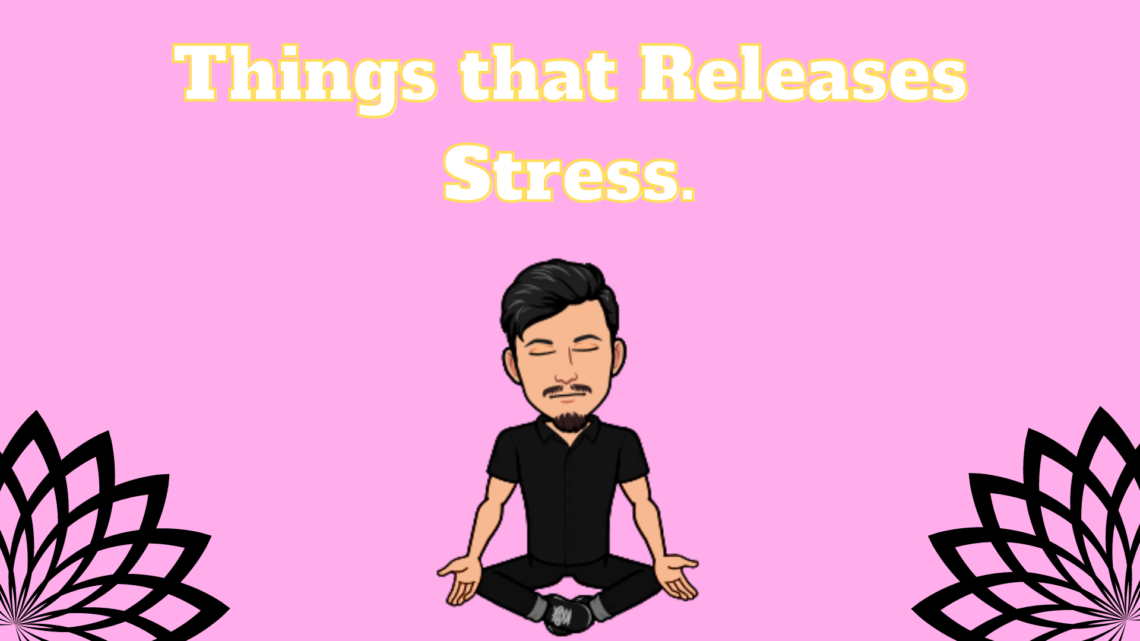
Things that Releases Stress.
Stress is some of the most widespread illnesses in today’s world. Stress has consumed our world like a wildfire burns the jungle. According to the survey, 1,20,000 people die from stress per year. In India, 89% of people suffer from stress. Work, finances, personal relations, and parenting. are the top contributors to stress.
People in India still don’t recognize the seriousness of stress being a significant illness and a severe medical condition affecting your mental and physical health. Many Indians still don’t seek medical attention to release stress.
But medical treatment is not the only way to treat stress, so here are some ways you can reduce stress.
1. EXERCISE
Almost any physical exercise can reduce stress. Exercise can effectively reduce stress even if you’re not athletic or in good physical form.
Exercise can increase your feel-good endorphins and other natural neurotransmitters that improve your mood. Exercise can also help you refocus your attention on how your body is moving, which can lift your spirits and help you forget the day’s irritations. Take into account activities that get you moving, such as walking, running, gardening, housecleaning, biking, swimming, weightlifting, or anything else.
2. EATING HEALTHY
Maintaining a nutritious diet is a crucial aspect of self-care. It an again a great way to help you with stress relief. Eat various fruits, vegetables, whole grains, and other healthy foods.
3. AVOID BAD ADDICTIONS
Some people may reduce stress by smoking, overeating, drinking too much alcohol or coffee, or taking illegal drugs. These behaviors are destructive to your health.
4. MEDITATE
By focusing your attention during meditation, you can silence the constant stream of disorganized ideas that may be stressing you out. Your emotional well-being and general health can benefit from the sense of calm, peace, and balance that meditation can help you achieve.
Whether taking a walk, taking the bus to work, or waiting at the doctor’s office, you can practice guided meditation, guided imagery, visualization, and other types of meditation anywhere, at any time. Anywhere is an excellent place to try deep breathing.
5. MASTURBATION
The sexual activity appears to release oxytocin, which releases stress chemicals like cortisol, promoting relaxation and reducing stress. Additionally, prolactin aids in controlling Trusted Source stress reactions.
It enhances sleep as well. In addition to lowering blood pressure and stress levels, masturbation promotes relaxation, making it easier to fall asleep. According to a 2019 study that polled 778 adults, orgasm was related to better sleep outcomes. Many respondents believed that masturbating shortened the time it takes to fall asleep and enhanced the quality of their sleep.
6. KEEP A DIARY
Putting your ideas and feelings into writing might help you let go of otherwise bottled-up emotions. Don’t consider what to write; let it come to you. Whatever comes to mind, write it. You don’t need anyone else to read it, so don’t worry about spelling or punctuation.
Just let your ideas flow onto a piece of paper or a computer screen. When you’re through, you can either throw away what you wrote or store it for further thought.
7. GET ENOUGH REST!!
You may have problems falling asleep due to stress. Your ability to sleep can deteriorate if you have too much to accomplish and think about. However, while you sleep, your body and brain are rejuvenated.
Additionally, the caliber and quantity of sleep you obtain might impact your mood, level of energy, attention, and general functioning. If you struggle to fall asleep, make sure you follow a regular schedule, listen to peaceful music before bed, and put your clocks away.
8. ASSERT YOURSELF
Even though you might want to, you can’t accomplish it all, at least not without incurring costs. You may better control your to-do list and reduce stress by developing the ability to say no or be willing to delegate.
It may appear simple to say yes to maintain harmony, avert confrontation, and complete the task at hand. However, the fact that your needs and those of your family are put aside may cause internal tension. This can result in stress, anger, resentment, and even the desire to wreak retribution. And that’s not a very collected and serene response.
9. TALK
It’s natural to want to isolate oneself when you’re upset and anxious. Instead, build social relationships with family and friends.
Social interaction may divert you, offer support, and help you cope with life’s ups and downs, making it an effective stress reliever. So go for a coffee break with a buddy, send a family member an email, or go to church.
Have more time? Consider giving your time to a charitable organization to benefit you and others.
10. REDUCE YOUR CAFFEINE TO REDUCE STRESS
Your central nervous system is stimulated by caffeine, a substance in coffee, tea, chocolate, and energy drinks. Overeating can make anxiety symptoms worse and make them more intense. Additionally, excessive use may interfere with your ability to sleep.
As a result, tension and anxiety symptoms could worsen. The maximum amount of caffeine that each person can tolerate varies.
Consider reducing your caffeine intake by substituting decaffeinated herbal tea or water for coffee or energy drinks if you find that it makes you jittery or anxious.
Although numerous studies demonstrate the health benefits of coffee when consumed in moderation, limiting daily caffeine intake to 400 mg, or about 4-5 cups of coffee, is advised.
However, caffeine-sensitive individuals may suffer heightened anxiety and tension even after ingesting considerably less caffeine than this.
These are some ways in which you can reduce and relieve stress, but we still recommend going for medical treatment if these ways don’t work for you.




